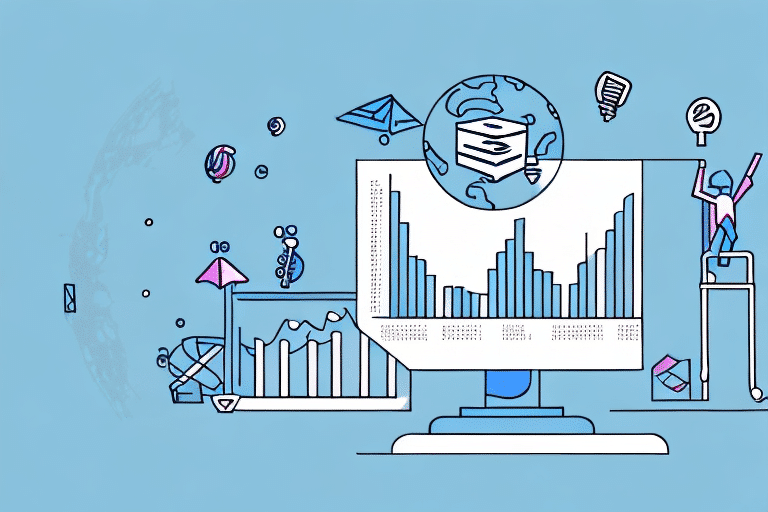Understanding Ecommerce Scaling and Its Importance
Ecommerce scaling is the strategic process of expanding your online business to increase sales, broaden your customer base, and enhance operational efficiency. In today's highly competitive digital marketplace, scaling effectively is essential for sustained growth and long-term success.
Defining Ecommerce Scaling
Scaling an ecommerce business involves optimizing various aspects such as inventory management, logistics, marketing, and customer service to handle increased demand without compromising quality. It ensures that your business can grow sustainably by meeting the needs of a larger audience while maintaining operational excellence.
Benefits of Scaling an Ecommerce Business
- Increased Revenue: Scaling allows businesses to tap into new markets and reach more customers, directly contributing to higher sales and revenue.
- Enhanced Brand Reputation: A scalable business can maintain consistent quality and customer service, which builds trust and strengthens brand reputation.
- Operational Efficiency: Scaling often involves optimizing processes, which can lead to reduced costs and improved efficiency.
- Competitive Advantage: Businesses that scale effectively can stay ahead of competitors by quickly adapting to market changes and consumer demands.
According to a Statista report, global ecommerce sales are projected to reach $6.54 trillion by 2023, highlighting the vast opportunities available for scalable businesses.
Identifying and Understanding Your Target Audience
Understanding your target audience is fundamental to scaling your ecommerce business. It enables you to tailor your products, marketing strategies, and customer experiences to meet the specific needs and preferences of your customers.
Conducting Market Research
Market research involves gathering and analyzing data about your target market, including demographics, interests, and purchasing behaviors. Tools like Statista and Pew Research Center offer valuable insights and data that can inform your strategies.
Additionally, utilizing surveys, focus groups, and customer feedback can provide deeper insights into what your customers value most, allowing you to make informed decisions about product development and marketing tactics.
Adapting to Changing Customer Needs
Consumer preferences are dynamic and can shift rapidly due to various factors such as technological advancements, economic changes, and cultural trends. Regularly monitoring these changes through tools like Google Analytics and social media listening platforms ensures that your business remains responsive and relevant.
Staying attuned to customer feedback and industry trends allows you to adjust your offerings and strategies proactively, ensuring continued customer satisfaction and loyalty.
Leveraging Data Analytics and Competitor Analysis
Data analytics and competitor analysis are critical components of a successful ecommerce scaling strategy. They provide actionable insights that drive informed decision-making and help identify opportunities for growth.
Utilizing Data Analytics for Decision Making
Data analytics involves collecting, processing, and analyzing data to uncover patterns and trends that can inform business strategies. By leveraging tools like Tableau and Power BI, businesses can gain valuable insights into customer behavior, sales performance, and marketing effectiveness.
For instance, analyzing sales data can reveal which products are performing well and which are not, enabling you to adjust your inventory and marketing efforts accordingly. Additionally, tracking website traffic and user engagement metrics can help you optimize your online presence for better performance and higher conversions.
Conducting Competitive Analysis
Understanding your competitors is essential for identifying gaps in the market and opportunities for differentiation. Tools like SEMrush and Ahrefs can help you monitor competitor strategies, including their marketing tactics, pricing models, and product offerings.
By analyzing your competitors' strengths and weaknesses, you can develop strategies to outperform them, whether through superior customer service, unique product offerings, or more effective marketing campaigns.
Implementing Effective Marketing Strategies
Robust marketing strategies are pivotal for scaling an ecommerce business. They drive traffic, increase brand awareness, and convert visitors into loyal customers.
Search Engine Optimization (SEO)
SEO is the practice of optimizing your website to rank higher in search engine results pages (SERPs). Effective SEO strategies include keyword research, on-page optimization, and backlink building. Tools like Moz and Google Ads Keyword Planner can aid in identifying relevant keywords and optimizing your content accordingly.
According to a Backlinko study, the first result on Google receives approximately 31.7% of all search traffic, underscoring the importance of ranking highly for your target keywords.
Social Media Marketing
Social media platforms like Facebook, Instagram, and Twitter offer powerful channels for reaching and engaging with your target audience. Effective social media marketing involves creating engaging content, utilizing paid advertising, and leveraging influencer partnerships.
Utilizing targeted ads through platforms such as Facebook Ads Manager allows businesses to reach specific demographics based on factors like age, location, and interests, resulting in higher engagement and conversion rates.
Email Marketing
Email marketing remains one of the most effective channels for customer acquisition and retention. By sending personalized and targeted email campaigns, businesses can nurture leads, promote products, and keep customers informed about new offerings.
Tools like Mailchimp and Constant Contact offer robust features for creating automated email sequences, segmenting your audience, and analyzing campaign performance.
Enhancing Customer Experience and Loyalty
Delivering an exceptional customer experience is crucial for fostering loyalty and encouraging repeat purchases. Enhancing customer experience involves personalization, mobile optimization, and a seamless checkout process.
Offering Personalized Experiences
Personalization involves tailoring the shopping experience to individual customers based on their preferences and behaviors. By using data analytics, businesses can provide personalized product recommendations, targeted promotions, and customized content.
According to Salesforce, 70% of consumers expect personalized experiences, making it a key factor in customer satisfaction and loyalty.
Mobile Optimization
With over 50% of global web traffic coming from mobile devices, ensuring that your ecommerce website is mobile-friendly is essential. Mobile optimization includes responsive design, fast loading times, and easy navigation on smaller screens.
Google's Mobile-Friendly Test tool can help you assess and improve your website's mobile performance.
Streamlining the Checkout Process
A complicated checkout process can lead to cart abandonment and lost sales. Streamlining the checkout involves simplifying forms, minimizing the number of steps required to complete a purchase, and offering multiple payment options.
Implementing features like guest checkout, auto-fill capabilities, and secure payment gateways can enhance the user experience and increase conversion rates.
Building a Strong Brand and Leveraging Partnerships
A strong brand identity and strategic partnerships are instrumental in differentiating your ecommerce business and driving growth.
Developing a Strong Brand Identity
Your brand identity encompasses elements like your logo, color scheme, messaging, and overall aesthetic. A consistent and memorable brand identity helps build recognition and trust with your audience.
Investing in professional branding services and conducting brand audits can ensure that your brand remains cohesive and resonates with your target market.
Leveraging Partnerships and Collaborations
Collaborating with other businesses, influencers, or industry leaders can expand your reach and open up new growth opportunities. Partnerships can take the form of joint marketing campaigns, product collaborations, or affiliate programs.
For example, partnering with a complementary brand can introduce your products to a new audience, while influencer collaborations can enhance your brand's credibility and visibility.
Monitoring Progress and Adapting to Trends
Continuous monitoring and adaptation are essential for maintaining growth and staying competitive in the ever-evolving ecommerce landscape.
Measuring Success with Key Performance Indicators (KPIs)
Key Performance Indicators (KPIs) are metrics that help you assess the effectiveness of your business strategies. Common KPIs for ecommerce include conversion rates, customer acquisition costs, average order value, and customer lifetime value.
Using analytics tools like Google Analytics and Kissmetrics, businesses can track these metrics in real-time and make data-driven decisions to optimize performance.
Staying Up-to-date with Industry Trends
The ecommerce industry is dynamic, with new technologies and consumer behaviors emerging regularly. Staying informed about the latest trends and advancements is crucial for maintaining a competitive edge.
Resources such as Shopify's Ecommerce Trends and Forbes Ecommerce provide valuable insights into current and future trends that can inform your business strategies.
Conclusion
Ecommerce scaling is a multifaceted process that requires strategic planning, data-driven decision-making, and a keen understanding of your market and customers. By implementing effective marketing strategies, enhancing customer experiences, building a strong brand, and continuously monitoring your progress, you can successfully scale your ecommerce business and stay ahead of the competition.
Embracing these practices will not only drive growth but also ensure that your business remains resilient and adaptable in the ever-changing digital landscape.






















